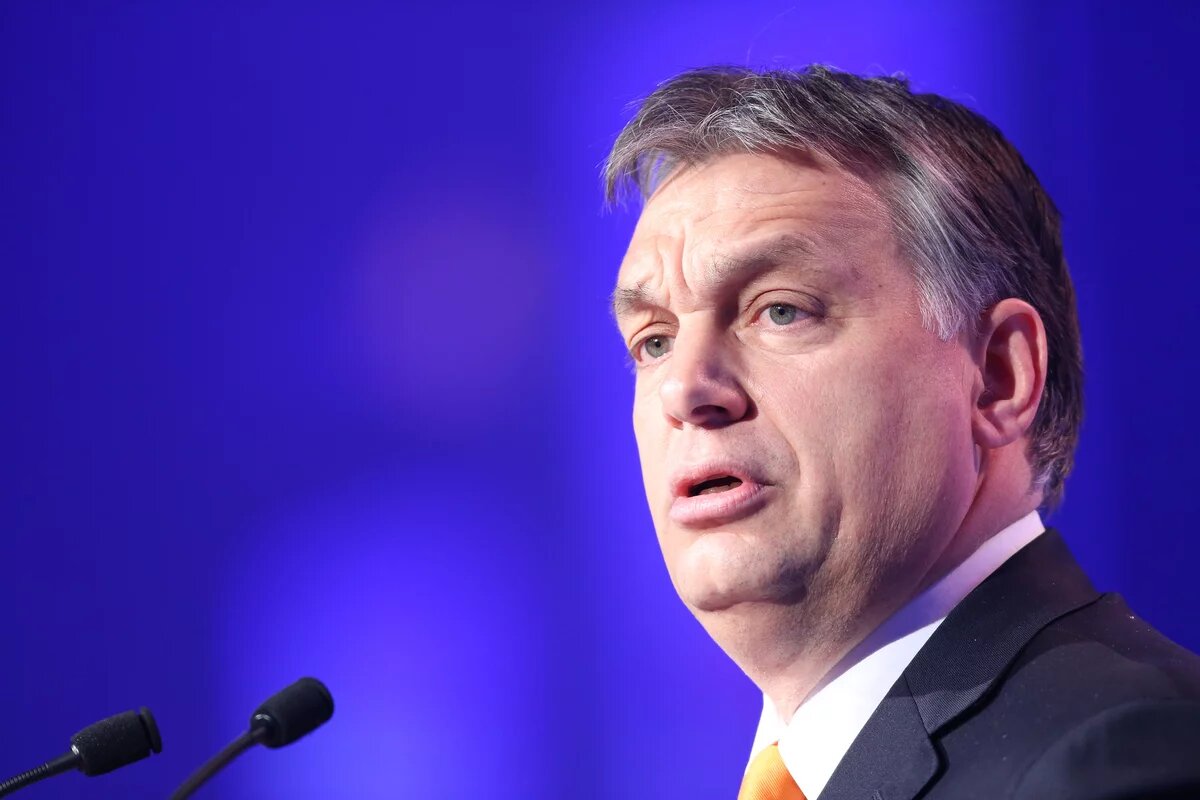
The Băile Tuşnad speech of Hungarian Prime Minister Viktor Orbán must be analyzed in a wider contex: The Orbán regime is systematically taking control of all institutions that could have a role in containing the power of the government.
As the Hungarian Prime Minister announced in his speech on 26 July, his government is building an “illiberal state” within the European Union. Knowing the measures implemented by the Orbán-government between 2010 and 2014, this information was not news; however, the speech has received remarkable reactions in the Hungarian and international media alike. The main reason for this is that Viktor Orbán spoke about his “illiberal” political system in an exceptionally open and explicit manner, even though the widely-used general meaning of the term refers to a limited democracy, a sort of autocratic setup. Not surprisingly, leaders of such states do not usually volunteer to label themselves “illiberal” – nor have representatives of the Hungarian government done so up to this point.
Orbán did not say a lot of new things in his speech besides this bold self-definition and announcement of an “illiberal state”. The prime minister said he wished to give a conceptual explanation of his government’s deeds over the past four years and their plans for the future, and he did so within the framework of a world view that he and his ideologists have been representing for years already. In this regard we cannot speak of a turning point of any kind; the text of the speech itself is not novel either, as it shows significant similarities with a study (pdf, 1.4 MB) published in March 2014 by Gyula Tellér, one of the prime minister’s advisors. (Tellér got into Parliament in 1990 as an MP of the liberal party SZDSZ, but from 1994 on he has been working as one of the most influential ideologists of FIDESZ; his views have radicalized over the years and today his works reflect an almost extreme-right, anti-globalist way of thinking, open even to conspiracy theories.)
A "work-based society"
Both the study of Tellér and the Orbán speech building upon it stem from an intention to surpass the political systems that developed after the change of regimes in 1990 and to create a new system. According to Orbán’s words, “the intellectual challenge that faces us is to use the regime change only as an experience and no longer as a point of reference in our debates”. The necessity of building a new system is also explained by the international context in the Prime Minister’s speech, as in his understanding the global economic crisis that burst out in 2008 has caused changes in the world comparable in importance to the two world wars as well as to the regime changes of 1989-1990.
Orbán believes the West is failing in an economic, social and cultural sense, while other Eastern, non-liberal democracies are becoming more and more successful. He highlights the examples of Singapore, China, India, Russia and Turkey as countries worth studying in order to gain influence for “community organisation” or, in other words, the building of the state. Then he claims:
“The Hungarian answer […] is that the era of the work-based state is approaching. We want to organise a work-based society that, as I have just mentioned, undertakes the odium of stating that it is not liberal in character.”
What the prime minister means by the phrase “work-based state” is not clear, not from this speech, nor from his previous ones. The phenomenon he describes could be primarily juxtaposed to that of the welfare state; on the level of a political communication, it also includes the promise of creating workplaces while satisfying the views of right-wing voters regarding welfare-chauvinism and the rejection of the idea of state benefits. The practical manifestation of the “work-based state” began with the extension of the concept of "public service”[1] and significant cuts to social services in Hungary over the past four years.
Orbán’s "national interest"
However, explanations of why this “work-based state” is not liberal can be found in the speech as well. The prime minister says that developing the illiberal state is important because the liberal system before 2010 was not able to put across Hungary’s national interests, failed to protect public property, did not strengthen the sense of national cohesion and failed to protect families from debt. With this reasoning, Orbán has depicted liberalism in the role of the enemy (with which his voters are already well familiar), since the expression has long been used in Hungarian common speech as a synonym for anti-nationalism, a swearword among right-wing and extreme right-wing opinion-makers.The word “illiberal” in Orbán’s speech expresses the primary value of the nation as opposed to the individual:
“...and so in this sense the new state that we are constructing in Hungary is an illiberal state, a non-liberal state. It does not reject the fundamental principles of liberalism such as freedom, and I could list a few more, but it does not make this ideology the central element of state organisation, but instead includes a different, special, national approach.”
However, if basic liberal values such as the freedom and rights of individuals do not form a central part of the operation of the state, then the logical outcome is that these values become secondary and may be easily overridden by collective “national interests” that Orbán states are central elements but never defines. (This aspect is not just reflected in this speech; take, for example, the fate of private pension funds.[2])
We have also been able to learn about these “national interests” from yet another Orbán speech dating back to 2009:
“…a big governing party is gradually being created along with a central political field of force capable of defining cases of national interest – doing so without constant debate, but rather representing the national interest through its own natural existence.”
To be clear: Viktor Orbán and his fellow political followers will decide, without any debate, what the “national interest” means in a certain context (which may even override individual rights), as according to FIDESZ, the national interest is a tautology. The Orbán government represents the national interest, and therefore the national interest is always equal to whatever the government is doing (and criticizing this fact is a betrayal of the interests of the nation).
Who could contain the power of the government?
The Băile Tuşnad speech must be analyzed in a wider context. In fact, the construction of an “illiberal state” in Hungary – meaning a system based on elections but still consisting of an authoritarian hierarchy – is not only clear from this speech, but also from the past few years of government. It is clear from the gradual limitation of the rights of the Constitutional Court, and stacking the governing body of the court with new, government-related members (as has been stated by the president of the Constitutional Court himself, almost explicitly); from tailor-made, irreasonable enactment; from the reshaping of the parliamentary and local election systems according to the interests of the governing parties; from the one-party constitution (“basic law”); from the work of an Attorney General who cannot be impeached; from the centralisation affecting literally everything; from the media law; from the loyal, parallel institutional system that is being built in the cultural and academic spheres; and ultimately from the destruction of the system of the separation of powers. The Orbán regime is systematically cutting out or taking control of almost all institutions that could have a role in containing the power of the government.
Today there are basically three such institutions left that perform these framing functions. One is the European Union, which can only interfere with certain measures taken by the Orbán government if they explicitly violate the rights of Community law and which is divided and weak politically: The European Commission did not even wish to comment on this speech. Another institution is that of the political opposition, whose weakness is only partially explained by its institutional adversity and who is incapable of using public space still left. The last institution is the generally-weak Hungarian civil society, certain watchdog organisations of which have been institutionally persecuted by the state recently. This is shown by the conflict that evolved around the Norway Grants, to which Orbán clearly alludes, by the way, in his speech when he, following in the shoes of Putin, calls NGOs that work on revealing corruption in the government “political activists financed by foreigners”.
The use of ideology
Since the change of regimes, it has been stated in several Hungarian and international comparative research pieces that Hungarian society has a strong need for paternalism. A larger share of Hungarians are disappointed by the economy and political system that developed after the change of regimes, they see their downsides and are in favour of a strong state (in spite of not trusting government institutions). The currently-governing FIDESZ was the party offering the most efficient politics based on these social expectations and beliefs through the use of an ideology that, in certain of its elements, can be placed alongside what Fareed Zakaria says are the characteristics of Putinism (nationalism, religion, social conservatism, state capitalism, media controlled by government).
Orbánism is benefiting in the same time from the Putin example and from Hungarian traditions and philosophical history. It identifies and fetishizes the nation, the governing political party and the state while making liberalism and liberal democracy responsible for everything wrong, as the institutions of liberalism have never fully functioned in Hungary. Orbán almost explicitly places government corruption in the light of the national interest, (for example, following the above-mentioned ideologist Gyula Tellér) when he sometimes openly talks about the building of a certain “national middle class” related to the party, a class he tries to feed with public funds, regarding this all as salutary (as opposed to the felonious clientele-building of the political opposition that ruled before 2010).
The 2009 Kötcse speech also included the following:
“A system of power politics has three resources; it has to be fed by three different things in order to reproduce itself: money, ideology, and votes.”
This omnipotent political system would, moreover, produce a lot of money for its beneficiaries. That is the reason why the West has to be seen as in decay in the Orbánism system, and that is why the 2008 economic crisis, compared to the importance of the world wars of the 20th century, has to be still-ongoing in his depiction: To maintain this exceptional state in which the institutions of the constitutional state and the procedures of liberal democracies cannot limit the powers of a government that embodies a nation – since, according to Orbán, this is crucial in an era when (to quote from his Băile Tuşnad speech) “anything can happen”.
[1] The phrase “public service” refers to labour organised by local municipalities and financed by the state, serving, in theory, to reintroduce the unemployed into the labour market. In practice however, public service in its current form does not support long-term employment, nor does it reduce poverty. It provides minimal access to social care, improves employment statistics, and places employees in a defenceless, dependent position vis-à-vis their employer, the local municipality.
[2] In 2011 the government privatised private pension funds worth 3 trillion Forints, of which about 230 billion has been transferred back to the citizens as real return; about 500 billion has been used to lessen the deficit of the pension funds; 200 billion worth of stocks have been placed at Hungarian National Asset Management Inc.; and more than 2 trillion has been used completely inefficiently for reducing debts. Currently the state debt is 85.1% of GDP, which is unprecedented since 2010.

